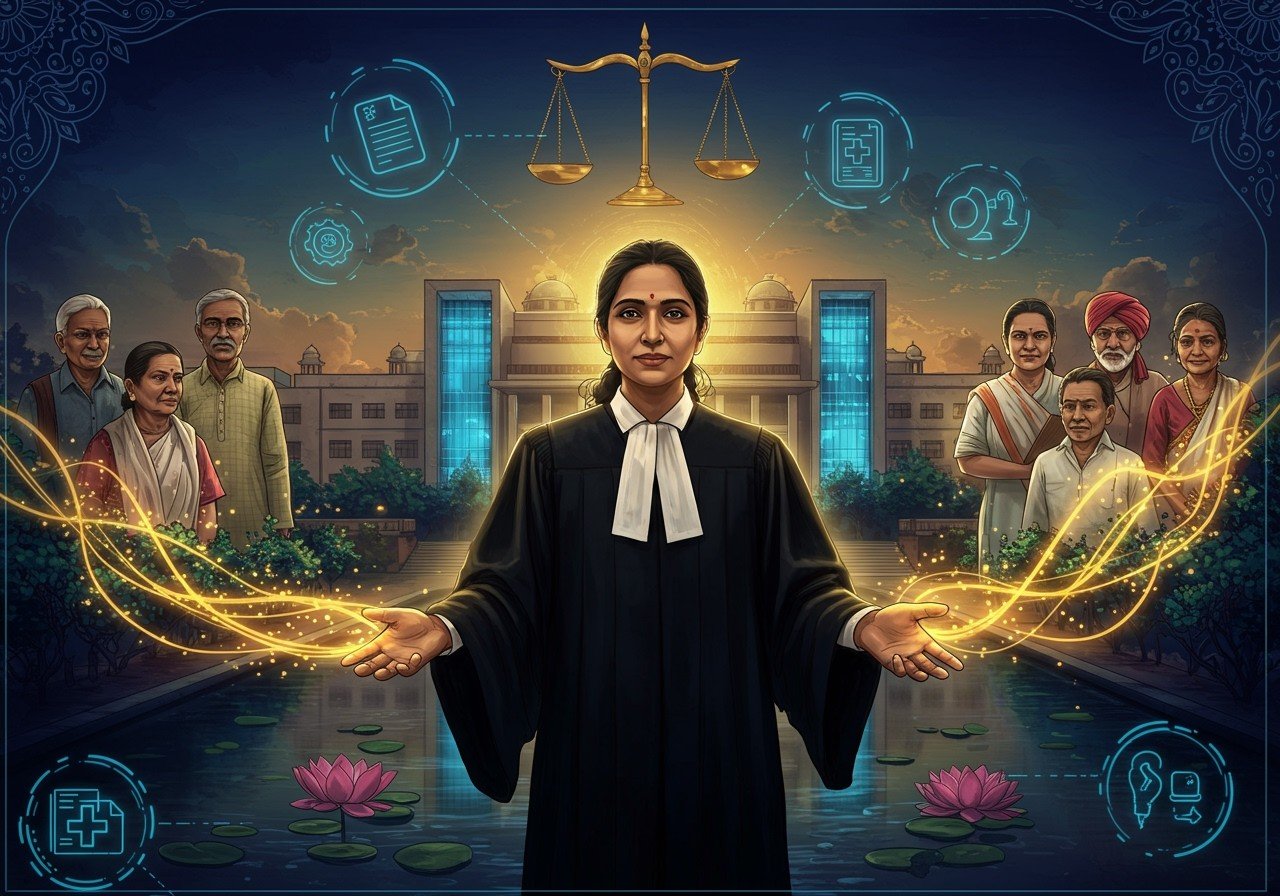
India’s legal system is undergoing a significant transformation, aiming to ensure access to justice for all citizens, regardless of their financial standing. Free legal aid plays a crucial role in this transformation, empowering vulnerable populations and upholding the principles of equality and fairness. For those seeking spiritual support during legal proceedings, Poojn.in offers a wide array of puja kits and items designed for various needs.
What is Legal Aid?
Legal aid encompasses a range of services designed to make legal processes accessible to everyone. This includes free legal advice, assistance with drafting and filing legal documents, representation in court, and support with alternative dispute resolution methods like mediation and arbitration. It is a crucial safety net for those who might otherwise be unable to navigate the complexities of the legal system.
Who Qualifies for Free Legal Aid in India (2025)?
As of 2025, free legal aid is available to a wide range of individuals under Section 12 of the Legal Services Authorities Act, 1987. The following groups are typically eligible:
- Women and Children: Recognizing their vulnerability within the legal system, women and children are given priority access to legal aid services. This includes assistance with matters related to family law, domestic violence, child custody, and other related issues.
- Scheduled Castes (SC) and Scheduled Tribes (ST): Members of these marginalized communities often face systemic discrimination and barriers to justice. Free legal aid helps ensure their rights are protected and they have equal access to legal recourse.
- Industrial Workmen: Legal aid supports industrial workmen in navigating labor disputes, ensuring fair treatment and protection of their rights as workers.
- Victims of Human Trafficking and Natural Disasters: Individuals facing these crises often require immediate legal assistance to secure their safety, rights, and access to essential services. Legal aid provides vital support during these challenging times.
- Persons in Custody: This includes individuals under trial, jail inmates, and others deprived of their liberty. Legal aid ensures they have access to legal representation and a fair trial. It also helps to safeguard their fundamental rights while in custody.
- Persons with Disabilities: Legal aid helps persons with disabilities overcome barriers to justice by providing accessible services and ensuring their rights are protected.
- Victims of Mass Disasters, Ethnic Violence, or Caste Atrocities: In the aftermath of such traumatic events, legal aid helps victims access justice, compensation, and other forms of redress.
- Individuals Below a Certain Income Limit: Eligibility extends to those whose annual income falls below a specified threshold, which varies by state (generally ₹3 lakhs or below). The limit for cases before the Supreme Court is ₹5 lakhs. This provision makes legal aid accessible to those who cannot afford legal representation.
- Senior Citizens: Depending on the rules of the respective State Governments, senior citizens may also qualify for free legal aid, providing crucial support for their legal needs in later life.
How to Apply for Free Legal Aid:
Applying for free legal aid is straightforward, with both online and offline options:
- Online: Visit the NALSA portal or the website of your State Legal Services Authority (SLSA) to apply online. The portals provide step-by-step guidance, making the process convenient and accessible.
- Offline: Visit your nearest District Legal Services Authority (DLSA) office in person. DLSA offices are usually located within the District Courts Complex. You can find information on local offices through the NALSA website.
Where to Seek Legal Aid:
Several institutions provide legal aid services across India:
- NALSA (National Legal Services Authority): Located at the Supreme Court of India in New Delhi, NALSA oversees legal aid programs nationwide.
- SLSA (State Legal Services Authority): Each state has its own SLSA, headed by the Chief Justice of the respective High Court.
- DLSA (District Legal Services Authority): Located in each district, the DLSA is chaired by the District Judge.
- Taluk Legal Services Committees: Many Taluks have dedicated committees for providing legal aid services at a more local level.
- High Court Legal Services Committee: Every High Court has its own committee for overseeing legal aid provisions within its jurisdiction.
Role of NALSA:
NALSA plays a pivotal role in ensuring the effective implementation of free legal aid programs across India. Its responsibilities include:
- Monitoring and Evaluation: NALSA monitors and evaluates legal aid programs, ensuring they function effectively and meet the needs of the population.
- Policy Setting: NALSA sets policies related to legal aid delivery, establishing standards and guidelines for consistent and quality service.
- Organizing Lok Adalats: NALSA organizes Lok Adalats, alternative dispute resolution forums that promote amicable settlements outside of traditional court proceedings.
- Legal Awareness Programs: NALSA conducts programs to raise public awareness about legal rights and the availability of legal aid services.
- Financial Assistance: NALSA provides financial assistance to SLSAs and NGOs involved in implementing legal aid schemes, supporting their operations and outreach efforts.
For those seeking spiritual solace and support during legal challenges, Poojn.in offers a diverse selection of religious items, including herbs, and idols . While these items can provide comfort and spiritual strength, they should complement, not replace, professional legal advice.


